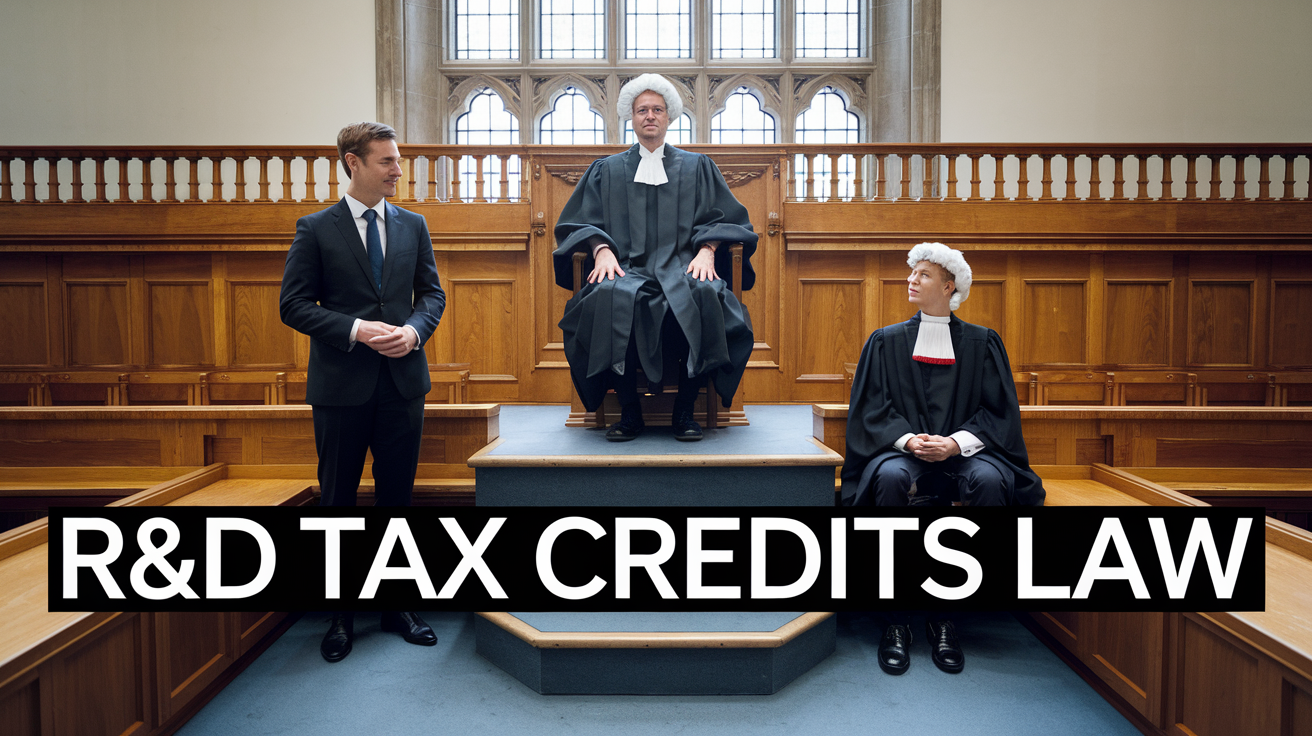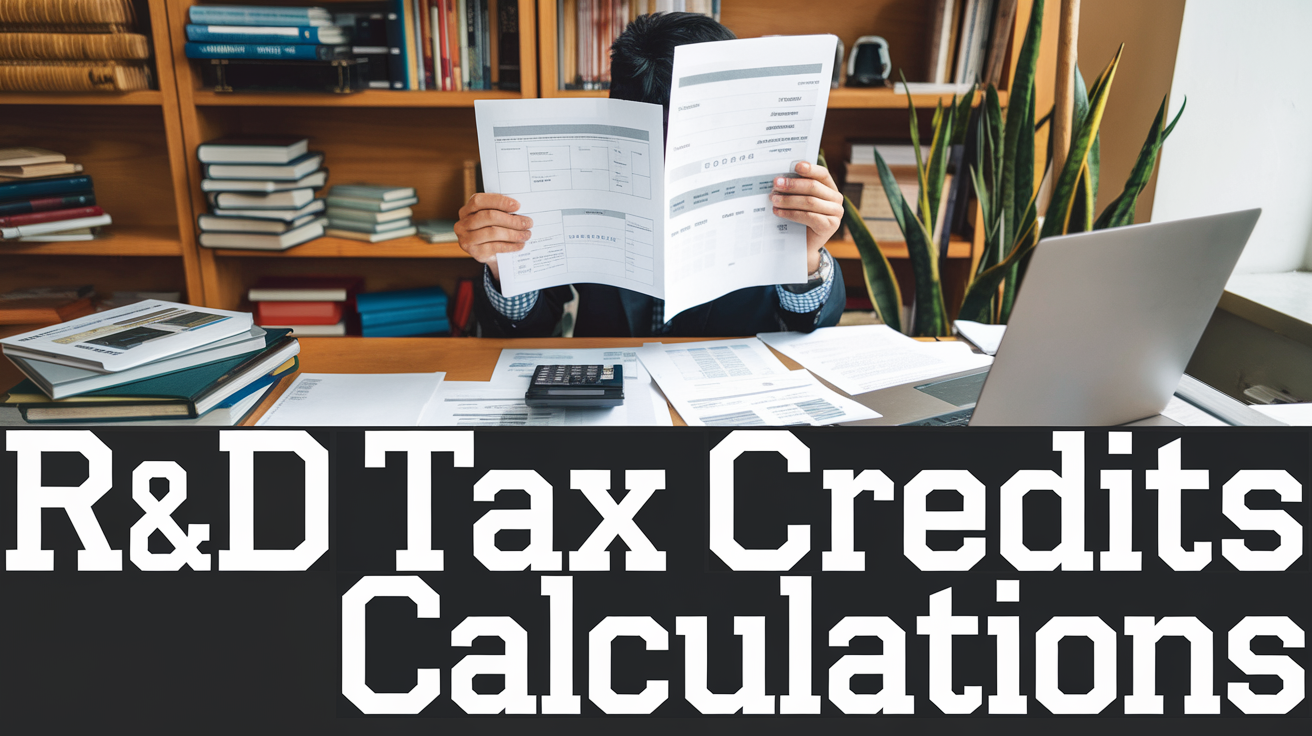R&D Tax Credits Bishop Auckland Durham
R&D tax credits in Bishop Auckland, Durham, are a valuable HMRC Corporation tax incentive designed to encourage companies of all sizes and sectors to invest in innovation. These credits can significantly reduce a company’s tax liabilities or generate refunds, providing substantial financial benefits for businesses engaging in research and development activities.
To qualify, your business must be taking a risk and aiming to advance the overall knowledge or capability in a field of science or technology. This involves resolving scientific or technological uncertainties through activities such as creating or significantly improving existing processes, materials, devices, or products. The project must entail some degree of uncertainty regarding the design, capability, or methodology, and it must require an iterative process of experimentation or trial and error, rooted in hard science or technical principles. By leveraging these credits, Bishop Auckland businesses can offset the costs associated with R&D, enhance their cash flow, and gain a competitive edge in innovation.

How Do R&D Tax Credits Benefit Bishop Auckland Businesses?
R&D tax credits significantly benefit Bishop Auckland businesses by providing financial incentives and fostering innovation. These credits help businesses offset the costs associated with research and development activities, which can be costly but crucial for growth and competitiveness.
Financial Advantages
R&D tax credits offer Bishop Auckland businesses a financial boost through several mechanisms. For instance, companies can claim a taxable credit of 20% for expenditure incurred on eligible R&D activities, known as the Research and Development Expenditure Credit (RDEC). This credit is taxable and can be used to settle corporation tax liabilities of the current, future, or prior periods.
Additionally, for companies that are loss-making or do not generate significant profits, the R&D tax credit can be converted into a payable credit. This is particularly beneficial for early-stage startups and pre-profit R&D-intensive businesses, as it helps manage cash flow, especially salary costs, without having to wait until the end of the tax year to receive the support.
Competitive Edge in Innovation
R&D tax credits give Bishop Auckland businesses a competitive edge in innovation by encouraging investment in research and development. These credits support projects that address scientific or technological uncertainties, driving innovation and improving overall knowledge in the relevant field of research. By incentivizing businesses to undertake R&D, the credits help companies stay ahead in their industries and contribute to economic growth and diversification.
The credits also enable businesses to undertake more ambitious R&D projects, which might otherwise be too costly. This support is crucial for businesses aiming to resolve complex scientific or technological problems, thereby fostering a culture of innovation and competitiveness in the region.

Which Industries Commonly Claim R&D Tax Credits?
Companies across various industries in the UK can claim R&D tax credits, provided they are involved in projects that seek to achieve an advance in science or technology. The eligibility for R&D tax credits is broadly defined, making it accessible to a wide range of sectors.
Technology Sector
The technology sector is a significant beneficiary of R&D tax credits. Companies developing new software, improving existing technologies, or creating innovative digital products can claim these credits. For instance, a company working on the development of a new AI algorithm or enhancing cybersecurity solutions would qualify for R&D tax relief.
Manufacturing
Manufacturing companies also frequently claim R&D tax credits. These companies often engage in projects to improve production processes, develop new materials, or design more efficient manufacturing systems. For example, a company modifying its production line to increase productivity or developing new manufacturing techniques would be eligible.
Life Sciences
The life sciences sector, including pharmaceuticals, biotechnology, and medical devices, heavily relies on R&D tax credits. Companies in this sector often conduct extensive research to develop new medicines, medical devices, or diagnostic tools, all of which qualify for R&D tax relief.
Others
Other industries, such as aerospace, automotive, and energy, also claim R&D tax credits. These sectors often involve complex scientific and technological advancements, such as developing new sustainable energy solutions or improving vehicle safety features. Any company that is working to overcome scientific or technological uncertainties in their field can potentially claim these credits.

What Qualifies as R&D Under UK Tax Law?
To qualify as research and development (R&D) under UK tax law, your project must seek an advance in science or technology that benefits the field overall, not just your business. This advance must involve overcoming scientific or technological uncertainties that are not readily deducible by a competent professional in the field.
Qualifying Activities
Qualifying R&D activities include those that aim to create a new or improved product, service, or process. Here are some key criteria:
- Advance in Science or Technology: The project must seek to advance the overall knowledge or capability in a field of science or technology, not just your company's own state of knowledge.
- Overcoming Uncertainties: The project must encounter scientific or technological uncertainties where the solution is not readily available or deducible by a competent professional in the field.
- Development of New Software: Developing new software products or modifying existing ones to solve specific problems can qualify as R&D.
- Improvement of Processes: Modifying production lines or internal systems to increase efficiency or productivity can also be considered R&D.
Excluded Activities
Activities that do not qualify as R&D include:
- Routine or Standard Practices: Work that does not involve overcoming scientific or technological uncertainties, such as routine software development or standard industry practices, does not qualify.
- Non-Scientific or Technological Advances: Advances in the arts, humanities, or social sciences (including economics) are not eligible for R&D tax relief.
- Publicly Available Solutions: Projects where the solution is readily available in the public domain or easily deducible by a competent professional do not qualify.
- Certain Industries: Activities from industries like care homes, childcare providers, personal trainers, wholesalers, retailers, pubs, and restaurants are rarely eligible for R&D tax credits.

How Are R&D Tax Credits Calculated?
R&D tax credits in the UK are calculated based on the type of scheme your business is eligible for, either the SME R&D tax credit scheme or the Research and Development Expenditure Credit (RDEC) scheme. The calculation involves determining the qualifying R&D expenditure and applying the relevant tax relief rates.
SME Scheme
For small and medium-sized enterprises (SMEs), the SME R&D tax credit scheme applies. As of April 1, 2023, the enhancement rate for R&D expenditure has been reduced from 130% to 86%, and the tax credit rate has been reduced from 14.5% to 10% for non-R&D-intensive companies.
- Profitable SMEs: You can claim up to 21.5p of every £1 spent on R&D activities by applying an enhanced deduction to your taxable profits. For example, if you spend £100 on qualifying R&D, your additional uplift would be £86, resulting in a tax saving of £21.50 if your company pays the 25% corporation tax rate.
- Loss-making SMEs: You can surrender your losses in exchange for a cash payment. For non-R&D-intensive companies, this equates to a cash payment of 10% of the losses surrendered, which translates to approximately 18.6% of the qualifying R&D expenditure. For R&D-intensive companies (where qualifying expenditure represents 40% or more of total expenditure), the tax credit rate remains at 14.5%.
RDEC Scheme
The Research and Development Expenditure Credit (RDEC) scheme is available to large companies and SMEs that are prevented from claiming under the SME scheme.
- RDEC Rate: For expenditure incurred on or after April 1, 2023, the RDEC rate has increased from 13% to 20%. This means you can receive a tax credit of £20 for every £100 spent on eligible R&D activities. After tax, this results in a net benefit of £15.
- Taxable Credit: The RDEC is considered as a receipt when calculating trading profits and can be used to offset your tax bill or received as a cash payment if no tax is payable.

What Are the Recent Changes to UK R&D Tax Credits?
The UK R&D tax credit system has undergone significant changes, particularly since the Autumn Statements of 2022 and 2023, and the implementation of a new Merged Scheme from April 2024. These changes aim to simplify the system, curb fraud, and provide more targeted support to R&D-intensive businesses.
Policy Updates
- Rate Changes: The R&D Expenditure Credit (RDEC) rate has increased from 13% to 20% for expenditure incurred on or after 1 April 2023, providing an effective rate of relief of 15% after tax based on a 25% corporation tax rate.
- Merged Scheme: A new 'Merged R&D Scheme’ will come into effect for accounting periods beginning on or after 1 April 2024, combining the SME R&D Tax Relief and RDEC schemes. This scheme will have a headline credit rate of 20% and will apply to all companies except for loss-making R&D-intensive SMEs.
- UK Territoriality: Expenditure on externally provided workers and subcontracting arrangements will be restricted to UK-based activities under the new merged scheme, with limited exceptions for qualifying overseas expenditure.
- R&D Intensive SMEs: The threshold for R&D intensity has been reduced from 40% to 30% of total expenditure, and loss-making R&D-intensive SMEs can claim up to 27% relief under the Enhanced R&D Intensive scheme (ERIS).
- Compliance Measures: HMRC has increased its focus on compliance, introducing new measures to review claims in detail and ensure accountability among claimant companies and their tax agents.
Impact on Businesses
- Simplified Process: The merged scheme aims to simplify the R&D tax relief landscape, making it easier for businesses to claim relief, although complexities still exist, particularly in defining qualifying companies and handling temporary fluctuations in R&D intensity.
- Financial Impact: The changes have resulted in varying financial impacts, such as a significant drop in the value of R&D tax credits for some SMEs, while others, especially R&D-intensive SMEs, may benefit from higher rates of relief.
- Compliance Burden: Businesses need to be more diligent in ensuring compliance with the new rules, as HMRC has increased its scrutiny and enforcement of R&D claims. This may require seeking professional advice to navigate the complexities.
- UK Focus: The restriction on externally provided workers and subcontracting to UK-based activities may affect businesses that previously relied on international resources, necessitating adjustments to their R&D strategies.

How Can Bishop Auckland Businesses Apply for R&D Tax Credits?
To apply for R&D tax credits, Bishop Auckland businesses need to follow a specific process and gather the necessary documentation. Here’s a step-by-step guide to help you through the application.
Application Process
- Register with HMRC: You must notify HMRC within six months of the end of the accounting period in which the R&D expenditure was incurred, especially if you have not previously claimed R&D relief or have not claimed within the last three years.
- Determine Eligibility: Ensure your project addresses an area of scientific or technological uncertainty and is innovative, contributing to the overall knowledge in the relevant field of research.
- Identify R&D Activities: Separate your business activities into direct and indirect R&D activities. Direct activities include those directly related to resolving the scientific or technological uncertainty, while indirect activities support the R&D project.
- Submit Corporation Tax Return: Include additional information to support your R&D claim when filing your corporation tax return. This information is crucial for the validity of your claim.
- Claim R&D Relief: You can claim either the Research and Development Expenditure Credit (RDEC) or the SME R&D relief, depending on your company's size and profit status. For SMEs, this can include an additional deduction and a repayable credit if the company is loss-making.
Required Documentation
- Project Documentation: Document the uncertainties and planned innovation at the start of the project to provide evidence for your R&D claim. Keep a timeline of activities and their purposes to detail when the business moves into the production phase.
- Expenditure Records: Maintain detailed records of all qualifying R&D expenditure. This includes direct and indirect costs associated with the R&D project.
- Approval and Returns: If applicable, submit a general approval application or a criteria and methodologies approval application. Once approved, file a supplementary return by the relevant due date.
By following these steps and ensuring you have the necessary documentation, Bishop Auckland businesses can successfully apply for R&D tax credits and benefit from the incentives provided.

What Common Mistakes Should Be Avoided When Claiming?
When claiming taxes, VAT, or customs duties, it is crucial to avoid common mistakes that can lead to penalties, fines, and delays. Here are some key areas to focus on:
Overclaiming
Overclaiming involves claiming more than you are entitled to, which can lead to serious consequences. For instance, HMRC may impose penalties if you claim business expenses that are not wholly and exclusively for trade purposes. Ensure you only claim expenses that are directly related to your business, such as office rent, equipment, and travel expenses, to avoid overclaiming.
Underclaiming
Underclaiming occurs when you fail to claim all the deductions and credits you are eligible for. This can result in an unnecessarily high tax bill. Make sure to familiarize yourself with the list of allowable expenses and keep clear records of all your business receipts to claim the correct amount. For example, if you are self-employed, you can deduct expenses such as office supplies, travel, and equipment.
Documentation Errors
Documentation errors can cause significant issues, especially when dealing with customs declarations and VAT returns. Incorrect commodity codes can lead to goods being seized or delayed, and incorrect valuation of goods can result in higher duty and VAT payments. Ensure you have proof of origin for imported goods and claim preference correctly on your customs declaration to avoid complications at the border.
Additionally, when filing VAT returns, ensure you enter the correct figures and have all necessary invoices and documentation. Claiming VAT without proper invoices or claiming VAT on deposits before the full payment is received can also lead to errors and penalties.

How Can Professional Advice Enhance R&D Tax Credits Claims?
Professional advice can significantly boost your R&D tax credits claims by ensuring you meet all the necessary criteria and maximize your eligible expenses. Experts in R&D tax credits can guide you through the complex process, helping you avoid common pitfalls and optimize your claims.
Role of Tax Credit Specialists
Tax credit specialists play a crucial role in several key areas:
- Identifying Qualified Activities: They help determine which of your research and development activities qualify for the R&D tax credit, ensuring you meet the Four-Part Test set by the IRS.
- Calculating Credits: Specialists can choose the most beneficial calculation method between the Regular Credit (RC) Method and the Alternative Simplified Credit (ASC) Method, ensuring you receive the maximum credit.
- Gathering Documentation: They assist in collecting and organizing the necessary documentation to support your R&D credit claims, which is vital for withstanding IRS scrutiny.
- Conducting Interviews and Analysis: Experts conduct interviews with key personnel and analyze financial and cost accounting data to identify and estimate federal and state research credits.
Benefits of Expert Guidance
Expert guidance offers several benefits:
- Maximized Claims: Professionals can help you identify all eligible expenses and activities, ensuring you claim the maximum amount of R&D tax credits you are entitled to.
- Compliance and Defense: Their expertise in tax law and engineering disciplines helps build a robust credit claim that can withstand IRS and state tax authority scrutiny.
- Efficient Process: Using proprietary tools and systematic approaches, experts simplify the process of allocating Qualified Research Expenses (QREs) and preparing comprehensive work plans.
- Reduced Risk: By ensuring all claims are well-documented and compliant, experts reduce the risk of audits and disputes with tax authorities.
In Conclusion
R&D tax credits in Bishop Auckland, Durham, offer a significant financial incentive for businesses to invest in innovation and research, driving growth and competitiveness in various sectors.
R&D Tax Credits UK specializes in helping businesses in the Bishop Auckland and Durham areas navigate the complex process of claiming R&D tax credits. By ensuring that all qualifying activities and expenditures are identified and properly documented, our team of experts can maximize your tax savings and reduce your corporation tax liabilities.
If your business is engaged in projects that aim to advance the overall knowledge or capability in a field of science or technology, you could be eligible for substantial tax benefits. Our specialists will guide you through the eligibility criteria, help you identify qualifying R&D activities, and manage the entire claims process efficiently to ensure you receive the maximum benefit.
Don’t miss out on the opportunity to reduce your tax bill and boost your cash flow. Contact R&D Tax Credits UK today to speak with one of our tax specialists and get a no-obligation quote. Let us help you unlock the full potential of R&D tax credits for your business.

